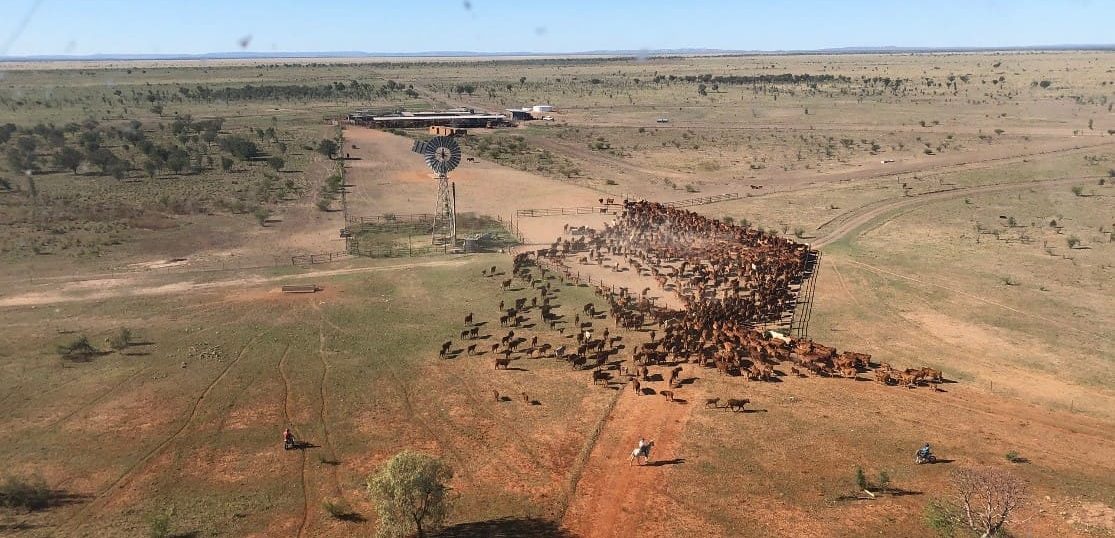CATTLE Australia says it may have found a path to reinstate a suspended carbon farming methodology that incentivises producers to reduce methane emissions by making their herds more efficient.
Earlier this year, the Department of Climate Change announced it was suspending the Beef Herd carbon farming methodology, with concerns it was not meeting integrity standards. The methodology had been under review over the past two years.
Cattle Australia has been critical of the Government’s handling of the situation, saying it was not interested in achieving genuine outcomes for agriculture.
This week, the organisation has been in Canberra trying to find a way of keeping the methodology – which both CEO Chris Parker and deputy chair Adam Coffey said may have been successful.
“The Feds pulled that methodology with limited consultation,” Mr Coffey told a panel discussion at yesterday’s Wilmot Field Days.
“But we are entering into a dialogue where I think we can that method back up and running with some extra assurances and verification.”
What was the Beef Herd method?
The Beef Herd Methodology incentivises producers to reduce methane ‘emissions intensity’ by either increasing the ratio ratio of weight to age of the herd, reducing the average age of the herd, reducing the proportion of unproductive animals in the herd and changing the ratio of livestock classes within the herd to increase the total annual live.
It was mostly used by corporate cattle companies to dip their toes in the water of the carbon market – with large numbers of cattle needed for the projects to be viable.
Almost 1million Australian Carbon Credit Units had been credited under the methodology.
What was the concern?
The concern was raised by a review undertaken by the Emissions Reduction Assurance Committee that raised three problems with the methodology:
- The possibility that seasonal variation rather than management was behind the improved efficiency
- Carbon leakage can occur where unproductive animals can be cast out of the project, but not necessarily out of the system
- As the Australian beef industry has become efficient without the incentive, the method was no longer a change from business as usual
What is Cattle Australia’s concern?
Cattle Australia has been raising a series of concerns about the way the Government has handled the Beef Herd Methodology, particularly for the lack of consultation.
The final report said the review of the method had received five submissions, two from beef producers or their representatives, one from a beef industry representative and two from individuals. It did not disclose exactly who those submissions were from.
The other concern is the lack of agriculture focused carbon methodologies, with soil carbon being one of the only other methodologies to encourage agricultural production.
“The decision also ignores the massive investment the Australian beef industry has made in research and development projects that have delivered new pasture species, nutritional additives and genetic technologies to help us achieve our goal of climate neutrality,” Mr Coffey said in response the original decision.
“The grazing sector has been proactive in responding to calls to implement practices that minimise climate impacts – we urge the Federal Government to repeal its decision and open access for increased participation in the Beef Herd Method as an effective financial incentive for climate abatement.”
Government undermining integrity
With the integrity of the methodology being the main factor in question, Nationals senator Susan McDonald told a Senate Estimates hearing earlier this week that the Government’s suspension itself was undermining the integrity of the work producers had done.
“To say they have to be integrity systems, of course they do, but only as long as the departments are supporting farmers in this – and I don’t seeing that happening.
“Instead, farmers are saying ‘why would we spend another dollar on emission reduction when our own Government is undermining the credibility of Beef Herd Methodology’.


I have previously commented on the revocation of this method.
I would like to add that the decision shows a complete lack of understanding of the role of risk management in agriculture. The method in question addresses this issue and makes the accusation that “productivity has already been improved” absolutely false.
The composition of the ERAC needs fewer academics and more people with practical industry experience if long term emissions reduction rather than short term budget savings is the goal.
Regards
Dr Richard Chisholm k9
I was involved from the outset in the development of this method and have been through all of these arguments before. They almost all result from either
1. an inadequate understanding of the concept of a project boundary within which emissions are calculated, or
2
a poor understanding of how the emissions baseline is calculated to account for environmental variations.
As to the question of whether the beef industry has no need for productivity improvement, the reviewers, have obviously not taken the time, as I did, with help from AAco, to see the Qld and NT beef industries in 2014. I had previously been a beef producer myself for 30 years in NSW.
A key issue is that Academics are fascinated by the idea that proponents will ” game” the method. There is no incentive for that, given the relatively low value of ACCUs per beast per annum.
Please seek any further advice you need in your quest to maintain a very thoroughly researched method.
Regards
Dr Richard Chisholm
This idea is completely absurd.
It is the same as anyone claiming carbon credits for buying a small car rather then a Dodge Ram.
The entire “carbon credit” industry is a complete con job. Full of grifters and people looking for quick easy money that other people have to pay for.
The cattle industry leadership should be better then this.